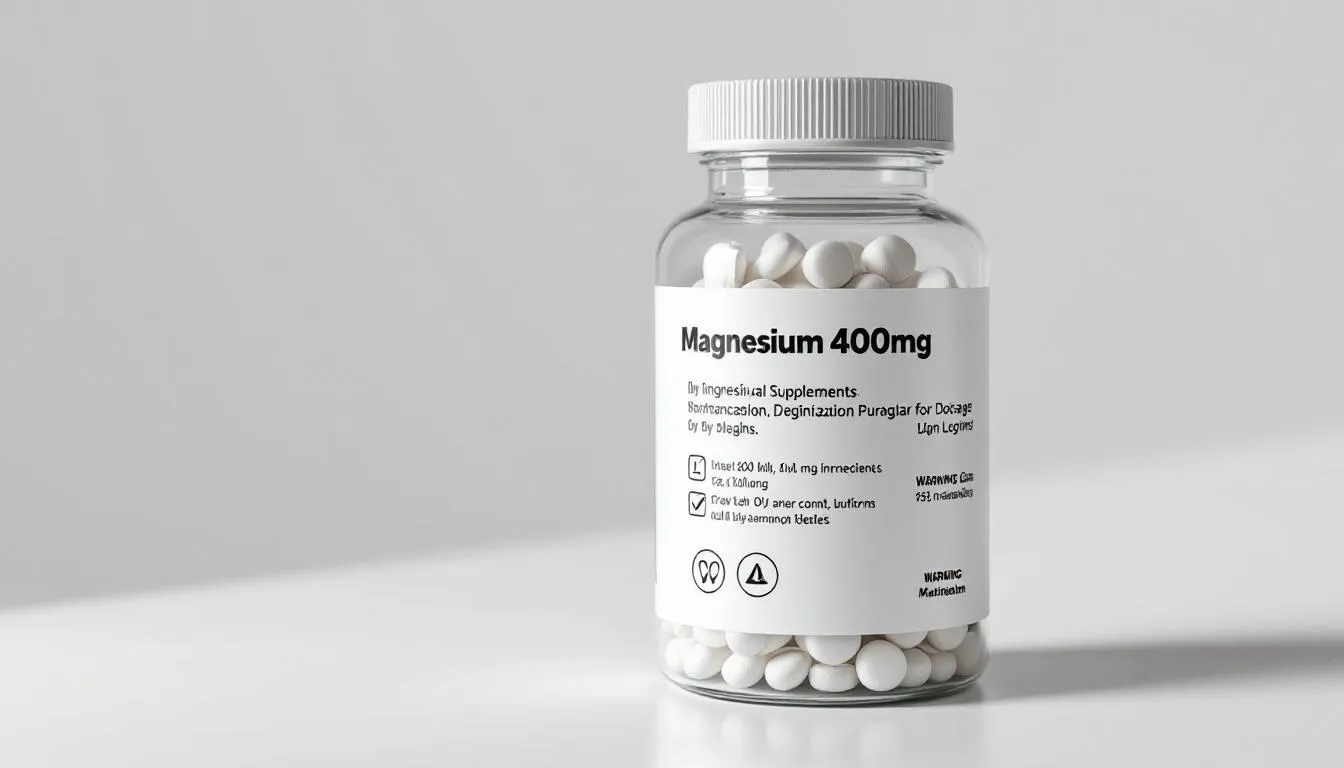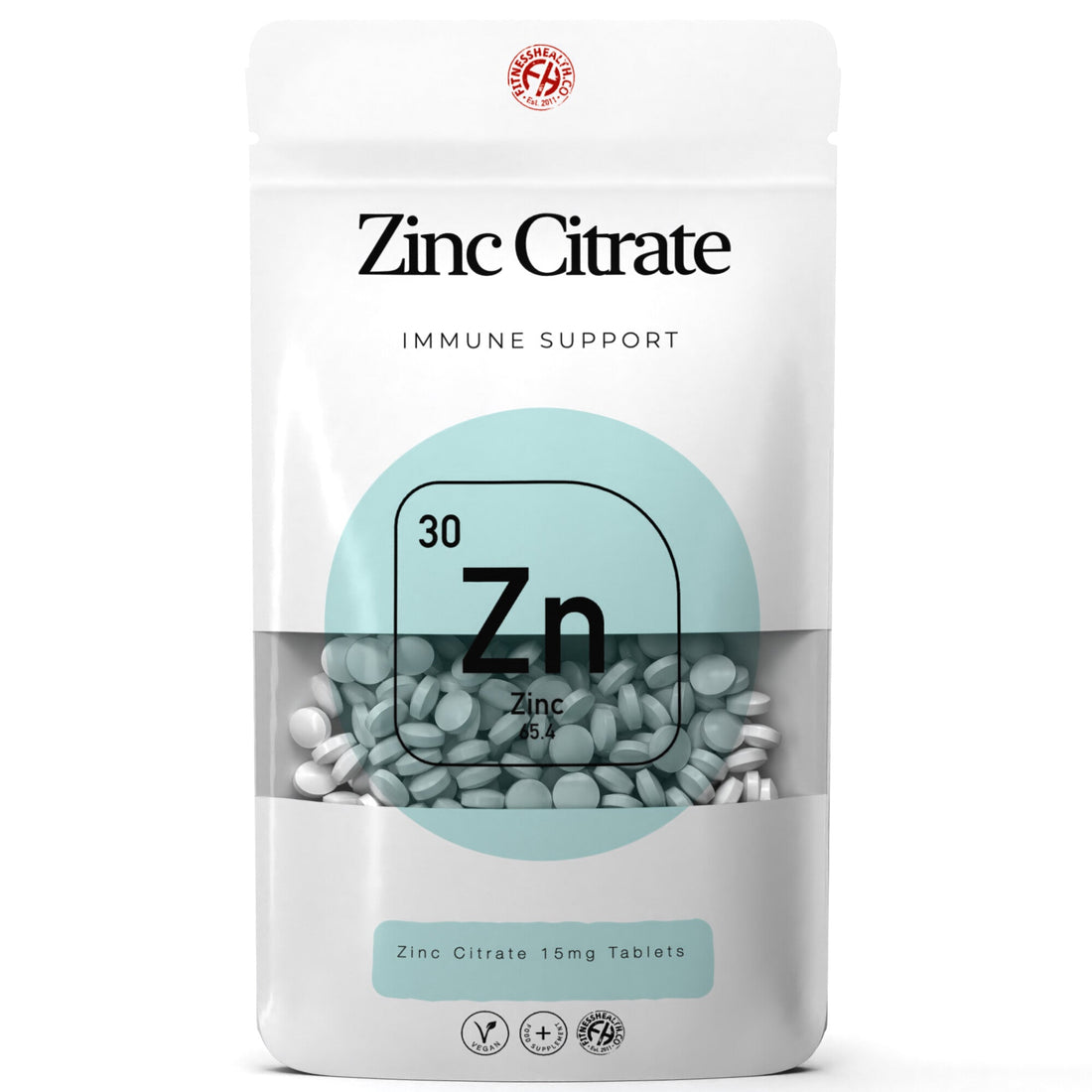Essential Guide to Zinc with Magnesium Benefits for Optimal Health
Introduction to Magnesium and Zinc
- Magnesium and zinc are essential nutrients that play a crucial role in maintaining optimal health - both magnesium and zinc are vital for various bodily functions, including immune system function and protein synthesis.
- It is important to get enough zinc through your diet or supplements, as not meeting the recommended daily allowance (RDA) can increase the risk of deficiency, which may impact immune function, metabolic health, and healing processes.
- Zinc supplementation and magnesium supplements can help fill nutritional gaps and support overall well-being, particularly in individuals with zinc deficiency or magnesium deficiency.
- Mineral supplements that combine magnesium and zinc, often with calcium, offer a convenient way to support overall health and address multiple nutrient needs at once.
- A balanced diet that includes food sources of magnesium and zinc, such as leafy vegetables, can help maintain adequate levels of these minerals.
- For those who need to supplement both minerals, magnesium zinc supplements are available as combined products to help ensure sufficient intake.

Health Benefits of Magnesium and Zinc
Magnesium benefits include supporting bone health, reducing inflammation, and promoting better sleep quality - magnesium intake is also essential for vitamin D activation and can help alleviate depressive symptoms. Deficiencies in magnesium and zinc have been linked to mood disorders such as depression and anxiety, highlighting their importance in mental health.
Zinc plays a critical role in immune function, wound healing, and protein synthesis, making zinc supplements a popular choice for supporting overall health and well-being.
Both magnesium and zinc have anti-inflammatory properties, with a significant influence on reducing inflammation and supporting disease management. The combined effects of both zinc and magnesium contribute to improved metabolic health and inflammation reduction.

Magnesium Supplements
Research studies have shown that using a magnesium supplement, such as magnesium oxide or magnesium stearate, can help increase magnesium levels and support bone health, heart health, and nervous system function.
Oral magnesium supplementation can also help reduce blood pressure, improve insulin resistance, and support weight management.
When taking magnesium supplements, it’s essential to follow the recommended dosage and consult with health professionals to avoid a high dose and potential side effects. For optimal absorption and effectiveness, it is generally recommended to take magnesium with food and at a different time from other mineral supplements.

Magnesium and Zinc Supplements
Magnesium and zinc supplements can be taken together to support overall health and well-being—zinc and magnesium supplements can help fill nutritional gaps and support immune function, bone health, and energy production. When you take zinc alongside magnesium, consider the timing and dosage, as proper balance can enhance their synergistic effects and optimize absorption.
Magnesium and zinc supplements are available in various forms, including zinc gluconate and zinc sulphate, and can be taken with food or on an empty stomach. When selecting a zinc supplement, choose one that is compatible with magnesium and other minerals to maximize health benefits.
When choosing magnesium and zinc supplements, look for products that contain high-quality ingredients, such as microcrystalline cellulose, and follow the recommended dosage to avoid too much zinc or magnesium. Be aware that high doses of zinc can interfere with copper absorption, so it is important to monitor your intake to prevent potential deficiencies.

Food Sources of Magnesium and Zinc
Food sources of magnesium include leafy vegetables, nuts, and seeds, while zinc-rich foods include meat, poultry, and seafood - a varied and balanced diet can help maintain adequate levels of these minerals.
Dietary magnesium intake and zinc intake can be influenced by various factors, including dietary preferences and lifestyle choices.
Increasing magnesium and zinc intake through food sources or supplements can help support overall health and well-being, particularly in individuals with a higher risk of deficiency.
How Much Magnesium
The recommended daily intake of magnesium varies based on age, sex, and other factors - how much magnesium is needed can depend on individual circumstances, such as pregnancy or lactation.
Magnesium deficiency can occur due to inadequate dietary intake, increased excretion, or certain medical conditions - consulting with health professionals can help determine the best course of action.
When taking magnesium supplements, it’s essential to follow the recommended dosage and monitor magnesium levels to avoid high doses and potential side effects.
How Much Zinc
The recommended daily zinc intake depends on several factors, including age, sex, and individual health needs. For most adults, the suggested amount is 11 milligrams per day for men and 8 milligrams per day for women, with increased requirements during pregnancy and lactation. Many zinc supplements on the market provide between 30-50 milligrams per serving, which can quickly exceed daily needs if not monitored. While zinc supplementation can be beneficial for those with a zinc deficiency or increased risk, taking high doses of zinc over time may cause side effects such as nausea, abdominal discomfort, and diarrhea. Additionally, too much zinc can interfere with the body’s ability to absorb other essential minerals, such as copper. To ensure safe and effective zinc intake, it is important to consult with health professionals before starting zinc supplements, especially if you are considering higher doses or have underlying health conditions.

Blood Pressure Benefits
- Magnesium supplementation can help reduce blood pressure and support cardiovascular health - magnesium benefits include vasodilation, improved blood flow, and reduced inflammation.
- Supplementation with magnesium and zinc may also impact cardiovascular risk factors such as LDL cholesterol, although changes in LDL cholesterol levels are not always significant.
- Zinc plays a critical role in maintaining healthy blood vessels and supporting cardiovascular function - zinc deficiency can increase the risk of cardiovascular disease.
- Chronic inflammation is a key factor in cardiovascular disease, and C-reactive protein is commonly used as a biomarker to assess inflammation levels. Supplementation with magnesium and zinc may help reduce C-reactive protein levels, thereby lowering inflammation.
- Combining magnesium and zinc supplements with a balanced diet and lifestyle can help support overall cardiovascular health and reduce the risk of chronic disease.
Glycemic Control
Both magnesium and zinc play a significant role in supporting healthy glycemic control. Magnesium is essential for numerous chemical reactions involved in glucose metabolism and helps improve the body’s response to insulin. Zinc is also vital for insulin function and has been shown to help reduce insulin resistance, particularly in individuals with type 2 diabetes. Supplementing with magnesium and zinc supplements may lead to better blood glucose management, as studies have found improvements in fasting plasma glucose and overall insulin sensitivity. The anti-inflammatory properties of both minerals further support metabolic health by reducing oxidative stress and inflammation, which are often linked to chronic disease. Including magnesium and zinc-rich foods, such as leafy vegetables, nuts, and seeds, as part of a balanced diet can help maintain healthy blood sugar levels. For those with diagnosed deficiencies or increased requirements, magnesium and zinc supplements may be recommended by health professionals to optimize glycemic control and overall well-being.

Bone Health
Magnesium and zinc supplements, along with calcium, are essential for maintaining bone strength and can help support bone health and reduce the risk of osteoporosis.
Magnesium benefits include supporting bone mineralization, while zinc plays a critical role in protein synthesis and collagen production.
Combining magnesium and zinc supplements with a balanced diet and lifestyle can help support overall bone health and reduce the risk of fractures and osteoporosis.









